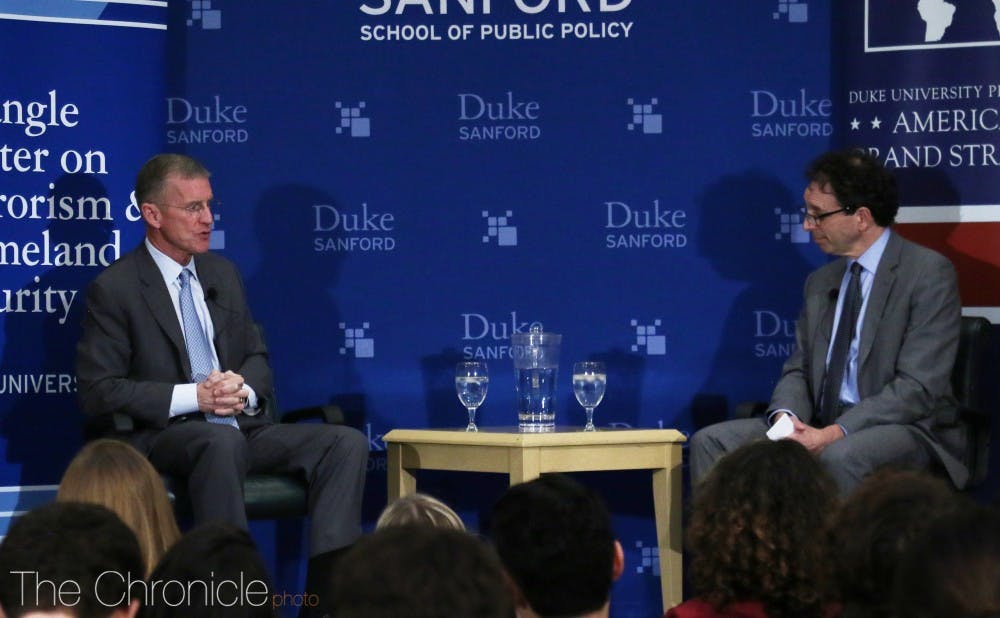In an increasingly polarized political environment, interacting more with different people is key, General Stanley McChrystal said at a talk Thursday.
McChrystal—retired Commander of U.S. and International Security Assistance Forces in Afghanistan—discussed U.S. foreign relations and conflict since 9/11 in a Terry Sanford Distinguished Lecture titled "Seventeen Years at War." He also commented on the current political climate, noting that we must focus on what makes up the "basic fabric of our democracy."
"What every one of us needs to do now is not worry about personality in office from either side," McChrystal said. "We need to decide what our values are...What are those things that bind us? What are those things that we need to protect? And then as we go forward in our political discussion, we have to take greater agency, greater responsibility for how this plays out."
McChrystal noted that political leaders, in particular, must take responsibility for their actions and their words.
"Tweeting is fine unless you’re operating a motor vehicle or trying to be the most powerful nation in the free world," he said. "But don't let it get personal. If you let it get personal, you cheapen the discourse."
A four-star general, McChrystal led the Joint Special Operations Command. Under his leadership, JSOC was credited with the capture of Saddam Hussein in 2003 and the death of Abu Musab al-Zarqawi, Al-Qaeda leader in Iraq, in 2006.
After retiring, he published a memoir about his military career, titled "My Share of the Task," in 2012. He currently serves as a senior fellow at Yale University's Jackson Institute for Global Affairs.
David Schanzer, a public policy professor, was the moderator for the discussion. He asked McChrystal if the root causes of Middle Eastern conflict since 9/11 were being addressed given the little progress that has been made.
McChrystal said that as long as there continues to be a lack of social, political and economic opportunity, people will remain frustrated with autocratic regimes and forces will build up, making the environment conducive to strikes.
He also spoke about the U.S. military strategy in Afghanistan.
"We went to Afghanistan in 2001 because it fit our interests," he said. "However, we’ve been down there 17 years—we’ve made certain commitments to them—which is also an issue of, 'do we try to see this through?' Then the final issue is, do we want to keep the footprint for our ability to influence things in the region, particularly counterterrorism."
He concluded that it would be best to take a "holistic" approach to the situation in Afghanistan, taking into account both "U.S. strategic interest" and "our commitment to the Afghan people."
Get The Chronicle straight to your inbox
Signup for our weekly newsletter. Cancel at any time.

